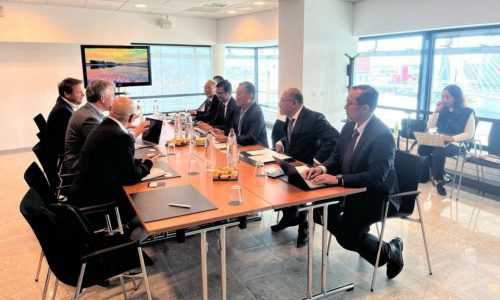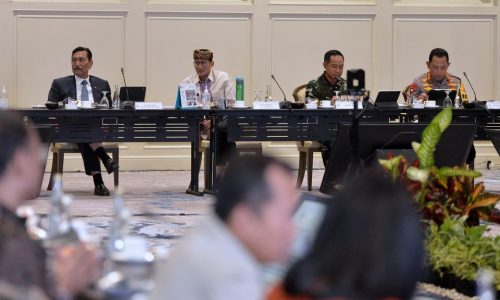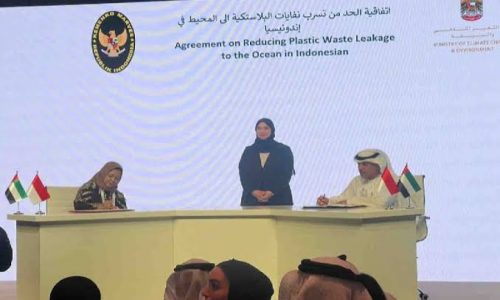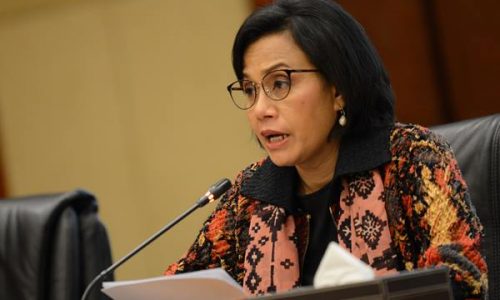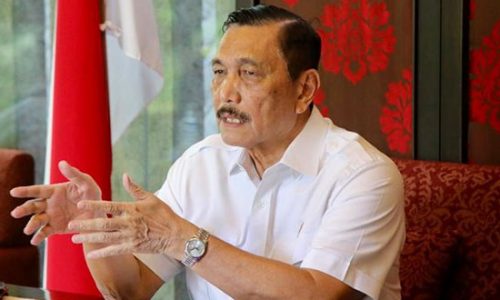Indonesia’s state-owned banks BRI, Mandiri, BNI, and BTN have presented a number of mitigation strategies to face the potential recession in 2023 in the meeting of the DPR Commission VI on Tuesday (28/3).
Amid the threat of recession and global economic uncertainty, these banks are aware of challenging and supporting factors related to Indonesia’s economy and banking sector in 2023.
As pointed out by the President Director of BRI, Sunarso, some of the challenging factors related to the economy and banking in 2023 include the projected downturn of the US economy in the third quarter of 2023.
Such a condition would disrupt global growth momentum and the uncertainty surrounding the end of the Russia-Ukraine conflict and the escalating tensions between China-Taiwan, which are driving global geopolitical uncertainty and potentially disrupting the global supply chain.
There is also an inflation rate which remains high at 5.51 percent and the global banking crisis like the collapse of Silicon Valley and Credit Suisse, which may give negative sentiment towards domestic banks, according to Sunarso.
Resilient economy
Despite the ongoing global uncertainty, BRI, BNI, Mandiri, and BTN remain confident and optimistic about the performance and condition of the economy and banking sector, which is projected to remain positive amid the potential recession in 2023.
This argument is supported by research using a Markov Switching Dynamic Model, which assumes a US recession in 2023 and a probability of only 2 percent for Indonesia.
This is considered because the Indonesian economy is strongly supported by domestic demand, with household consumption dominating 51.87 percent of Indonesia’s GDP in Q4 of 2022. This consumption also supports GDP growth, which grew by 5.31 percent compared to the previous year at 5.02 percent.
Furthermore, major improvements in the MSME businesses in all sectors prove the government’s ability to carry out its main tasks, which is apparent through the improving economic performance, followed by the creation of more job opportunities.
It is true that MSMEs have become a significant contributor to Indonesia’s economy around 61.1 percent of the national GDP and 97 percent of total employment.
In addition, the Director of BTPN, Henoch Munandar, also presented the continuous growth in house sales.
This is demonstrated by the increase of house prices in Q4 2022 as reflected in the increase of the BTN Housing Price Index (HBPI) by 6.80 percent compared to the previous quarter which was at 6.56 percent.
Henoch explained this is driven by the increase in the allocation of subsidized mortgage loans (KPR) in 2023 to 220 thousand units, which is higher compared to the previous year’s allocation of 200 thousand units.
Not only that, the LTV/FTV policy for home purchases up to 100 percent has also been extended until December 2023, making it an opportunity to increase the middle segment market.
Optimistic, but still cautious
Despite the optimism and resilience of the national economy in facing potential recession, risks of credit quality deterioration, CKPN increases, and interest burden still need to be watched carefully.
Therefore, Indonesian state-owned banks have prepared anticipatory strategies to mitigate the potential economic recession in 2023.
Such strategies include anticipation of the increase of benchmark interest rates and tightening liquidity, continuing sustainable performance growth, accelerating progressive digital initiatives, and risk mitigation measures.
From each explanation presented by the bank directors on Tuesday (28/3), it can be concluded that Indonesia state-owned banks, such as BRI, Mandiri, BNI, and BTN have taken several strategies to mitigate the potential recession in 2023, including:
- Continuously monitor the quality of loans through intensive simulation and stress-testing
- Maintain a high coverage ratio, and enhance the risk-based pricing model to improve the competitiveness of products
- Optimize write-offs for a higher recovery rate
- Optimal liquidity management and keeping Cost of Funds (CoF) low by encouraging Current Account Saving Account (CASA) growth through digital channel optimization for customer acquisition and transactional improvement
- Strengthening financial indicators such as market share, profitability, asset quality, liquidity and capital adequacy, cost management, and synergy with subsidiary companies
- Business growth through digital initiatives and business acceleration primarily focusing on top-tier sectors, key industry players, and MSMEs
Moreover, to strengthen the enabler, the Indonesian state-owned banks also develop various scenarios regarding the impact of the recession on the economy and its effects on inflation, interest rate hikes, as well as banks’ performance.



